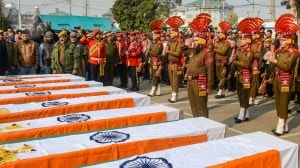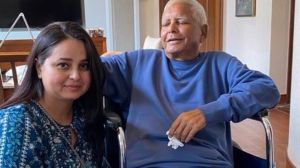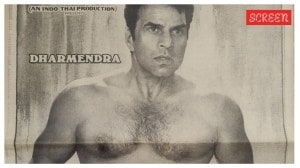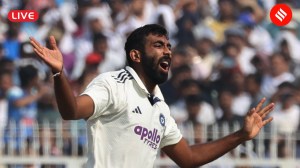Wanted: A strong leadership
A day after The Indian Express reported Dhanraj Pillay’s interview in which he said ‘‘jealous’’ teammates froze him...

A day after The Indian Express reported Dhanraj Pillay’s interview in which he said ‘‘jealous’’ teammates froze him out of the play-off against Pakistan at Cologne, the game’s elder statesmen spoke on how the problem of on-field regional bias should be tackled.
‘‘There’s no doubt that regionalism and lobbying have always existed in Indian hockey, and incidents have increased of late’’, said former Olympian Ashok Kumar, son of the legendary Dhyan Chand and hero of the 1975 world cup win. ‘‘But on the field, the players have to be united and perform for the country.’’
The responsibility of keeping things clean is on the coach, captain and senior players. ‘‘They have to ensure that the team’s performance is not affected’’, said Ashok. ‘‘Their role is more important in the context of the Indian team because our players come from different regions and parts of the country and there are differences in language and religion.’’
Of all these, most important is a strong captain who is above regional biases. The problem, says Ashok Kumar, is that the appointment of a captain is not taken seriously enough. ‘‘We appoint someone as captain just because he’s played for 10 years. The main quality should not be seniority but the ability to carry a team.’’
Also, says Ashok, the captain should get a long tenure for stability and to build up that respect among his players. ‘‘The captain gets changed after every tournament. How can you then expect the players to obey him. We need to ensure a stable period for the captain so that he can build the team into a unit.’’
Maybe a touch of professionalism will help, says Vasudevan Baskaran, captain of the 1980 Olympic gold-winning team, and under whose coaching Dhanraj Pillay played in the 1998 World Cup and 2000 Olympics. ‘‘The coach has his hands full with the technical side of the game, so the responsibility of talking to the boys and keeping them together should be the job of a professional manager.’’
But, he added, the IHF changes the manager with every tournament.
It’s impossible to remove completely the feeling of regionalism and groupism, says former Indian skipper and coach Zafar Iqbal, but it can be reduced to the point of near insignificance if the coach and captain share a good rapport.
‘‘Differences between players from Bombay, Punjab or South India will always exist because of some natural conditions but it is here the coach needs to assert himself and play a bonding role.’’
True, says former Olympian Jagbir Singh. ‘‘The coach needs to sort out such problems within the team and make the players understand that they are playing for the country.’’
M K Kaushik, coach of the Indian team that won the Asian Games gold in 1998, says Dhanraj erred in taking his complaints public. ‘‘He should first have discussed it with the coach; if there was no solution, he should have spoken to the IHF officials.’’



- 01
- 02
- 03
- 04
- 05



























